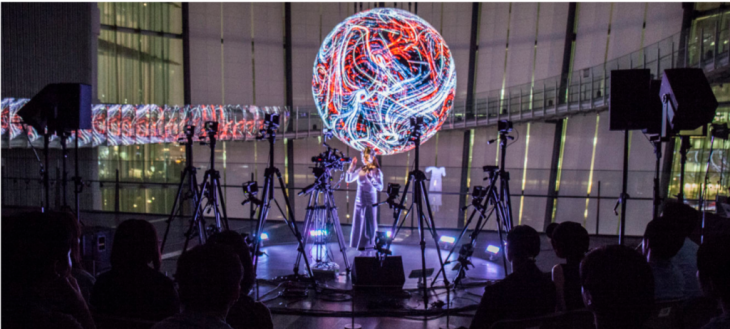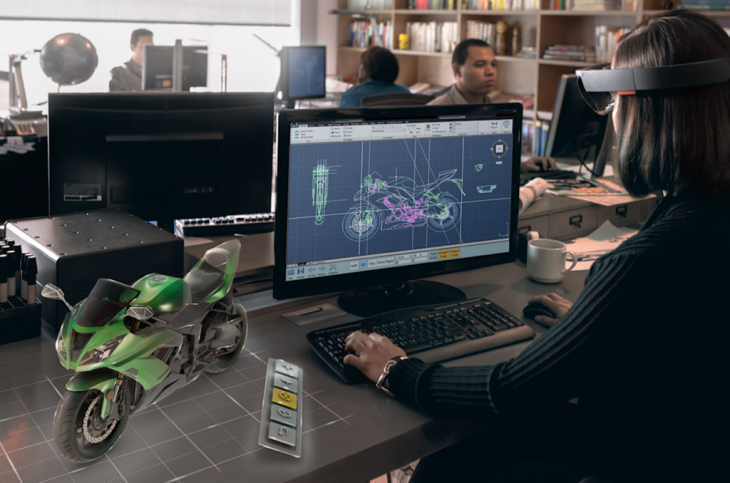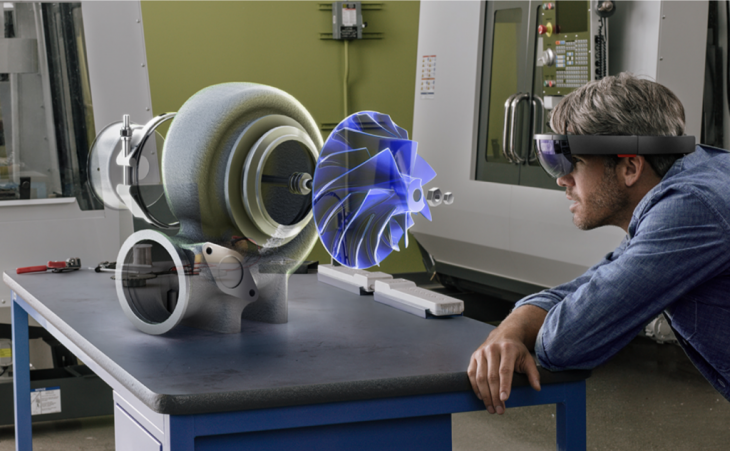SE.8 – Elective Seminar
NEW INTERFACES VR / AR
The Future of Reality
Faculty: Starks Lara
Brief
The Internet today is a network of information. It contains more of 60 trillion web sites, With more of 75 millions of servers, that transmits millions of emails and messages per second. Our lives and work run on this internet of information. But with the quest of artificial realities the internet will become the internet of the experiences. In the next years, the internet of the experiences will be bound and networked together into distributed virtual worlds.
Now those artificial realities are emerging through devices as HTC Vive and Hololens, those are enabling new ways to transmit, quantify, redefine, share or access in new ways of communication and visualized information. To make, say, right now those future realities are becoming a new interface for physical and digital integration on the process of Design (design tools), Manufacturing (industrialization 4.0), Product Deploy (Product engagement, and updates). By mapping our environments, those devices uses outward-facing cameras and sensors to scan our environment by protocols that save a mapped place in the cloud that allow us to link our profession, tools and spaces. Acting as a IOT devices that interact with the web and the physical world.
The seminar will introduce you to the current Virtual Reality and Augmented Reality offerings, exploring their fundamental capabilities in software development, and as well, the requirements in hardware development. You will be introduced in the basic of coding, and the knowledge necessary to develop Augmented Reality (Hololens) and Virtual Reality (HTC Vive) application that will interact with internet, microcontrollers, sensors and psychical computers.

Learning Outcomes
-
- Coding: You’ll then learn basic coding in C#, and develop more your computer science skills. (No prior programming or Unity knowledge is required)
- Devices and Technology: You will learn about the current VR and AR offerings, explore their fundamental capabilities and requirements.
- Physical Computing: You will be able to create your own IOT edge IoT VR or AR application with Unity and extend it with and raspberry PI or Arduino and their ecosystem.
- Installations, Interactions and The Video Game Industry:You will be able to understand how to deploy, target audience and manage VR or AR proyect. In top of this, you will become a expert user on one of the most used engine to develop games across multiple platforms

PROGRAM
Week 1
Introduction Day
Future Realities And Choosing A Target Platform
Introduction To The Interaction Design Document
Git Repositories 101.
Week 2
Result Of The Introduction To The Interaction Design Document
First Interaction With The Unity Ecosystem
Unity
- Unity Console
- Variables And Functions
- If…Else Statements
- Deploy The Application For Cartoboards
- Introducing Materials And Shader
- Introducing Lighting
- Creating & Using Unity Prefabs
- Add Background Music And Sounds
- Vuforia 101
- Deploy The Application For iPhone and Android
Week 3
Introducing To The Seminar Assignment
Unity, Blender
- Introducing Assignment 1
- Printing Text To The Unity Console
- Using Variables
- Using If…Else Statements
- Creating Functions
- Importing Assets
- User Interfaces Ux Pt1
- Building The Game Engine
- Deploy The Application For HTC VIVE
Week 4
Determining The Core Interaction Mechanics Brief
Unity, Visual Studio Development
- Using Static Variables
- Colliders, Triggers & Collisions
- Using Physics Materials
- Creating And Using Invisible Colliders And Gravity
- Using Hierarchy Between Game Objects
- Deploy The Application For HTC VIVE pt2
Week 5
Determining The Project Scope Brief
Unity And C#
- Static Variables
- Colliders, Triggers & Collisions
- Physics Materials
- Creating And Using Invisible Colliders And Gravity
- Hierarchy Between Game Objects
- Particle Systems
- Introduction To Objects And Classes
- Game Levels
- Buttons And Interactions
- Load Scenes And Exit
- Deploy The Interaction For HOLOLENS pt1
Week 6
Determining Story And Interaction Brief
Unity, Visual Studio Development, Arduino, Raspberry
- Connecting Unity With Arduino (Physical Computing)
- Connecting Unity With The Web (Api)
- Lighting System Controller By Unity
- Force Sensitive Interaction With Augmented Reality
- Iot Sensing For Unity
- Deploy The Game For HOLOLENS pt2
- Unity Connected To Raspberry Pi
- Computer Vision In Unity (Opencv)
- Machine Learning For Unity (Ai)
- Effects Fx On Unity
- Deploy Application To SteamVR, Microsoft Store And Unity Store
Week 7
Final Presentations

ç